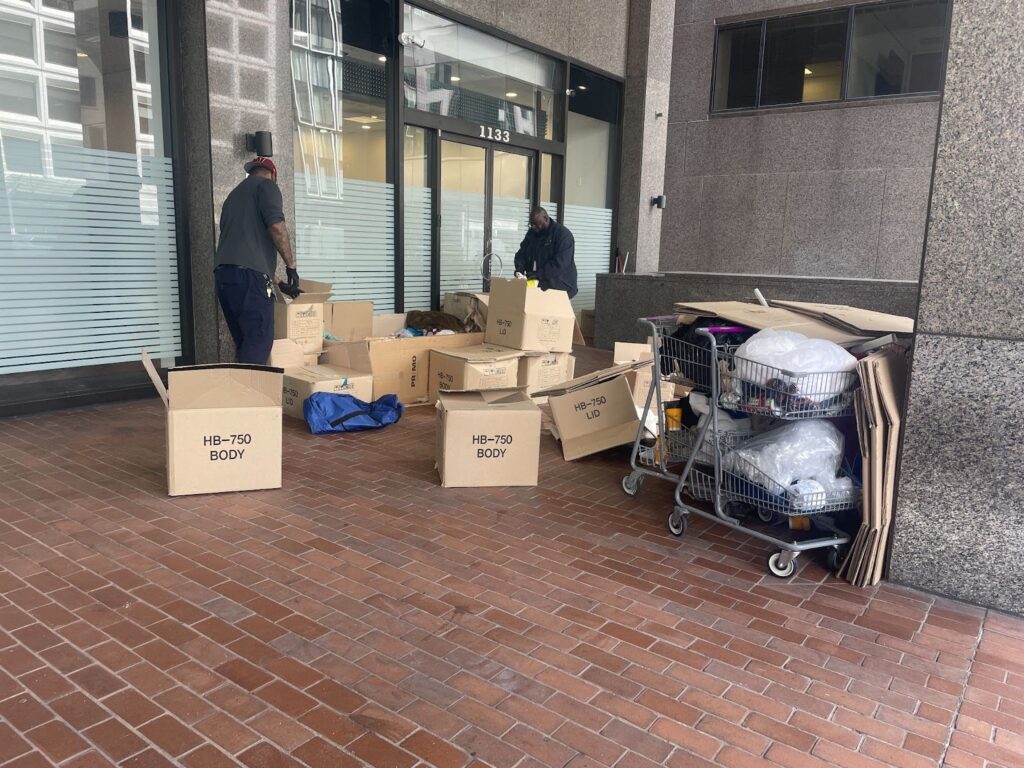Given these harrowing economic times, it’s common to read about the unemployed in our city. We’re sometimes told that since DC is the hub of government, the unemployed here have it easier than the rest of the country. However, the current unemployment rate of 10.5 percent in our nation’s capital suggests the opposite. Clearly, lots of people are having difficulty finding a job in this city. DC’s homeless, whose current crisis is often the product of unemployment, are one group finding it especially difficult.

When envisioning a homeless person, many would likely conjure up a grossly stereotyped image of a bearded man adorned with more coats than appropriate for the weather, begging with a change cup in hand, and with seemingly no understanding of personal hygiene. They may also think that person does not have a job and is not looking for one. This could not be further from the truth.
According to a 2002 national study by the Urban Institute, 45 percent of homeless adults reported having worked within the past 30 days. Coincidentally, unemployment is the second most commonly reported reason for homelessness among adults.
Despite these statistics, employment for the homeless is a policy issue that has taken a back seat to current nationwide Housing First efforts. In fact, one would be hard pressed to find recent data on homeless employment rates, evidenced by the fact that the Urban Institute’s 2002 study is the most recent reliable data found.
It’s simply not given much attention because homeless employment initiatives typically cost more than programs that house the homeless. It’s akin to brushing a problem under the rug; out of sight, out of mind.
Even with the relative lack of attention given to this issue by the DC government, many situationally homeless individuals pull themselves out of homelessness through hard work and diligent saving. And despite their demonstrated willingness to work when given the opportunity, the lifestyle circumstances experienced by the homeless make it incredibly difficult to find and keep a job, let alone the full time, stable jobs that so many of us enjoy.
Take a moment to picture yourself as a homeless job seeker. Imagine sleeping on a bunk bed in a large room shared by dozens of individuals. Imagine being roused from sleep at night by a stumbling drunk or a rambling person suffering from mental health problems.
You may sleep with an alcohol-filled spray bottle to keep bed bugs at bay. Envision yourself being wakened by a punch in the face for snoring in your sleep.
During the day, things aren’t much easier. Homeless job seekers often have very limited storage space to keep interview clothing.
They also lack basic resources such as funding for transportation to and from job interviews or even to get to work once they have a job. Some have criminal records or disabilities that prove to be major barriers to employment. Others can’t afford to keep their professional certifications or licenses current. Many don’t have access to a computer or printer.
Fortunately, there is help available for homeless job seekers. Many private nonprofit organizations, such as Jubilee Jobs or DC Central Kitchen, provide vital resources to these individuals.
Also, to be fair, the DC government recently awarded $2.5 million worth of grants for job training programs to serve 1,300 DC residents, including the homeless. However, in spite of these ongoing efforts, it is important to remember that the playing field for homeless job seekers remains uneven.
Bobby Corrigan is a case manager at Jobs Have Priority, Inc.








